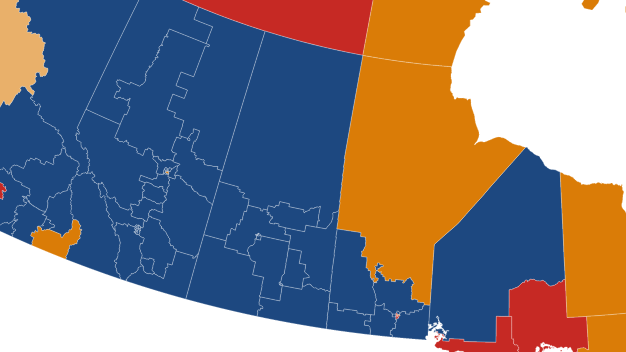As a direct result of the existence of a minority government in Quebec, the National Assembly voted unanimously on motions opposing the Harper government. If he could, Jean Charest would have avoided scratching the federal government.
Quebec – A unanimous National Assembly launched an attack on Ottawa yesterday, calling for the withdrawal of Bill C-56, which increases the number of representatives in the House of Commons, and Senate reform Bill C-43. As if that wasn’t enough, MPs demanded that the Harper government investigate the report released by new Official Languages Commissioner Graham Fraser on Tuesday.
In the National Assembly on Tuesday, official opposition leader Mario Dumont called on Prime Minister Jean Charest to oppose Bill C-56. This bill, which increases the number of MPs in the House of Commons in Ontario, Alberta and British Columbia by 22, reduces the political weight of Quebec, which continues to have 75 federal MPs. But both the Prime Minister and Canadian Intergovernmental Affairs Minister Benoît Pelletier refused to intervene.
However, yesterday the Liberals joined the AQ and PQ in voting for a joint motion calling for the withdrawal of Bill C-56. This must be seen as a clear consequence of the situation of the minority government, while the two opposition parties, if they agree, can accept any motions they want. The Liberal government has the choice of isolating itself through rejection or bowing to the majority.
At Mr Pelletier’s request, the motion tabled jointly by the Minister and the Leader of the Official Opposition by the MP for Richelieu, Sylvain Simard, also mentions Bill C-43, which allows the Prime Minister of Canada to appoint senators elected by the population.
“At night he [Jean Charest] “We have given advice,” said Mario Dumont, who, however, wished that the Prime Minister himself had proposed this joint proposal.
“The marginalization of Quebec within Canada continues,” stressed Sylvain Simard, critic of the second opposition group on Canadian intergovernmental affairs. “Since 1985, 48 seats have been added to the House of Commons, none of which are for Quebec. While the nation of Quebec is officially recognized, at least in words, it would be completely absurd to base Quebec’s political weight solely on its demographic weight.
In his brief intervention in favor of the motion, Benoît Pelletier did not go as far as Mr Simard or even Mr Dumont. The minister simply emphasized the importance of Quebecers’ place in the Canadian Parliament, which includes the Senate. Any “significant change” in the upper house must come with Quebec’s consent, he reiterated.
The parliamentary leader of the second opposition group, Diane Lemieux, requested a recorded vote on the motion, forcing Mr Charest, who had left the Blue Room, to return to the chamber so that his vote could be recorded.
Together with Berthier MP François Benjamin and Borduas MP Pierre Curzi, Benoît Pelletier introduced another motion half-heartedly criticizing the Harper government. “That the Assembly reaffirm the importance of defending and promoting the French language as an official language of Canada,” the motion begins, while the Commissioner for Official Languages has just accused the Conservatives of hypocrisy on issues of bilingualism protection. Members of the National Assembly unanimously demand that the Harper government reaffirm its intention to implement the recommendations of the Commissioner’s recent report.
To watch in the video

Twitter enthusiast. Organizer. Explorer. Reader. Zombie aficionado. Tv specialist. Thinker. Incurable internet maven.


;Composite=(type=URL,url=https://images.radio-canada.ca/v1/assets/elements/16x9/outdated-content-2015.png),gravity=SouthEast,placement=Over,location=(0,0),scale=1)

;Composite=(type=URL,url=https://images.radio-canada.ca/v1/assets/elements/16x9/outdated-content-2016.png),gravity=SouthEast,placement=Over,location=(0,0),scale=1)
;Composite=(type=URL,url=https://images.radio-canada.ca/v1/assets/elements/16x9/outdated-content-2020.png),gravity=SouthEast,placement=Over,location=(0,0),scale=1)

;Composite=(type=URL,url=https://images.radio-canada.ca/v1/assets/elements/16x9/outdated-content-2022.png),gravity=SouthEast,placement=Over,location=(0,0),scale=1)